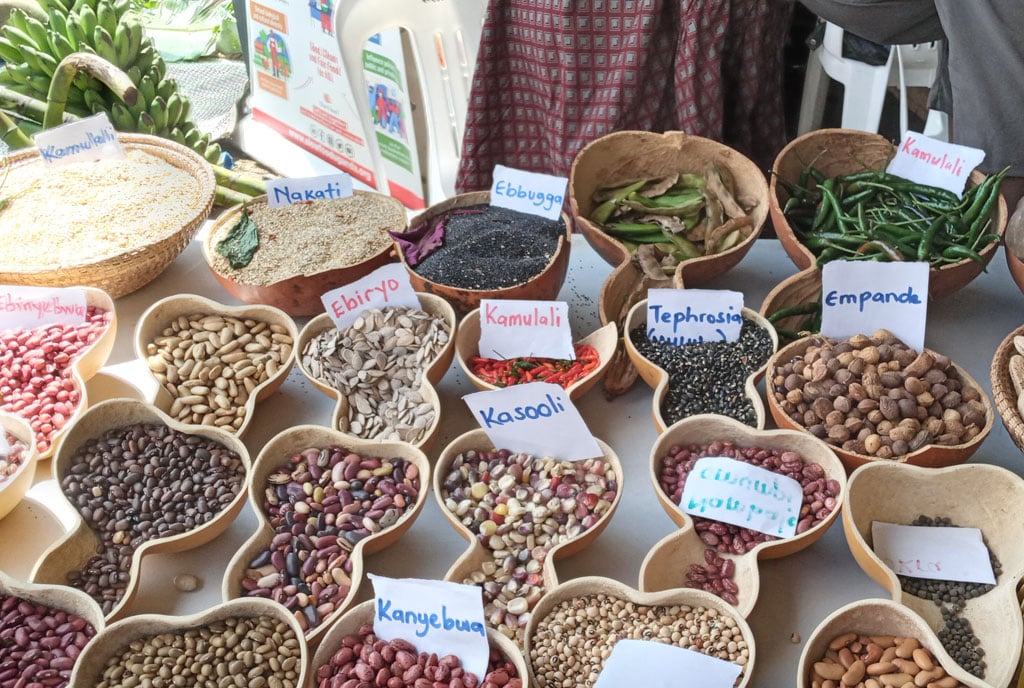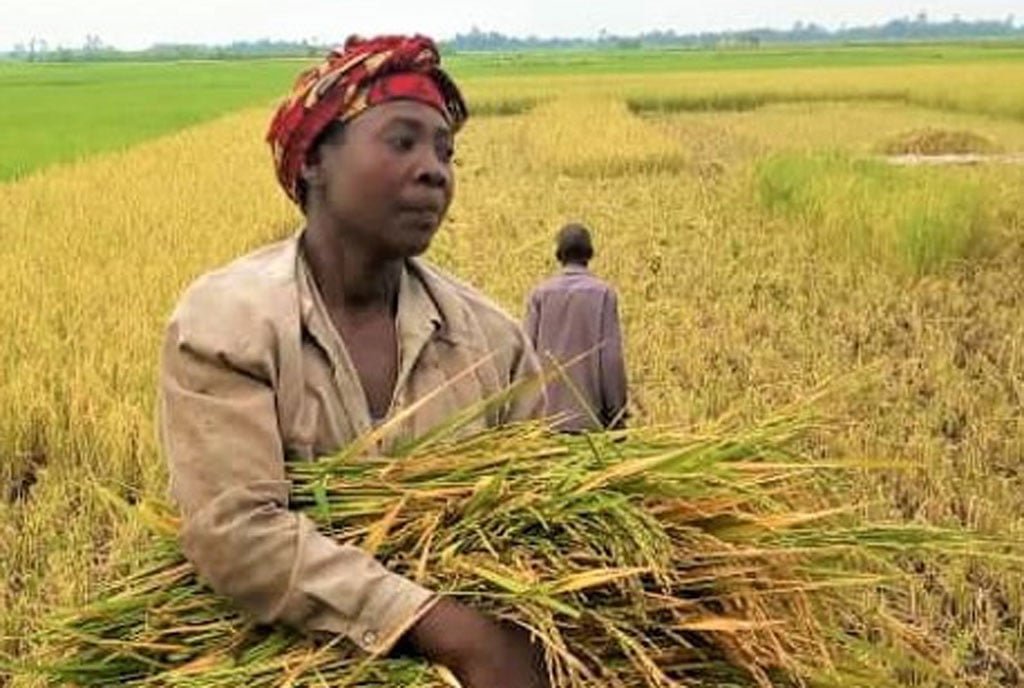Prime
Investing in traditional seed production

Indigenous seeds on display at a seed fair in Kampala. Organic farming practices ensure sustainability of indigenous sseds.. PHOTO/LOMINDA AFEDRARU
What you need to know:
- The core of agricultural and food systems revolves around seeds.
- Stakeholders throughout the food value chain play a vital role in assisting farmers to safeguard indigenous seeds through organic farming practices.
Farmers cultivating traditional crops nationwide take charge of processing their own seeds. A group of farmers dedicated to cultivating indigenous crops convened in Kampala last week to exhibit their products. Among them were groups showcasing seeds processed on-site, available for sale to fellow farmers.
The range of seeds included those from vegetables like Nakati and Amaranth (Buga), legumes such as beans and groundnuts, as well as vegetative crops like bananas, aerial yams, and a local fruit named Amatungulu.
In sub-Saharan Africa, including Uganda, the deficiency in food production is often linked to weak seed production and distribution systems. Factors such as inadequate access to quality seeds and limited implementation of seed policies contribute to these challenges.
Despite recent developments, African farmers, particularly in Uganda, have not fully benefited from advancements in seed sector development. Many seed companies focus on commercial crops, leaving indigenous crops cultivated for nutritional purposes on a small scale.
To address this gap, community seed banks have emerged, enabling farmers to process and preserve their own seeds for current and future use.
During the recent Agroecology Week activities in Kampala, Seeds of Gold caught up with a group of farmers engaged in processing these indigenous seeds.
Sustainability of agroecology
Joshua Aijuka, head of programs at Pelum Uganda, emphasises the importance of growing both commercial and indigenous crops. He advocates for adopting Agroecological Market Systems as a holistic approach to agricultural production and marketing. This approach integrates ecological principles, social considerations, and economic viability, aiming to create resilient, inclusive, and sustainable food systems.
The expo serves as a platform to integrate sustainable development frameworks, including the Sustainable Development Goals (SDGs). Markets play an important role in promoting the economic development of rural areas and preserving traditional knowledge and cultural heritage.
Despite their importance, Agro ecological markets are largely overlooked due to the unavailability of data on their usefulness and hardly get any direct or indirect public support towards their strengthening to enhance service delivery and the much-needed food systems transformation.
To him farmers growing indigenous crops face the challenge of seed availability and access
to their produce the reason development partners come in to support them to link them to available markets in a bid for them to sell their seed and other products.
Seed processing and marketing
Hudson Nsubuga, the leader of Nambale Agroecology Learning and Incubation Centre in Nakifuma, shares insights into their two-acre farm where various indigenous crops are grown.
The farm serves as a vegetative seed bank and income-generating initiative for the youth group. Nsubuga practices mixed farming, growing both commercial crops such as maize, sweet potatoes, and coffee, and indigenous crops such as matungulu and aerial yam.
Another group from Busoga, known as Banda Kyandaza, specialises in seed processing for vegetables like Nakati and amaranth.
They ensure proper drying, storage, and packaging of seeds, offering them for sale to farmers. Nsubuga stresses the importance of preserving the agroecological environment by growing different types of crops, especially for those with limited land.
This means for those owning small pieces of land, they must apportion it and ensure about three to four types of crops are grown. This is because the indigenous plants do to yield that much to fetch the required income.
For those who reasonable land, it is important to carry out mixed farming incorporating indigenous crops with commercial crops but most importantly observing traditional methods by avoiding artificial pesticides.
Seed circles
An essential practice amongst farmers across Africa is their enthusiastic exchange of seeds and knowledge with one another. Seeds are so vital in their lives, that farmers are naturally impassioned by seeds and their diverse traits.
Instinctively they are inclined to swap, share, and exchange knowledge and to try new varieties and crops at any opportunity – markets, festivals, celebrations, travelling to relatives.




